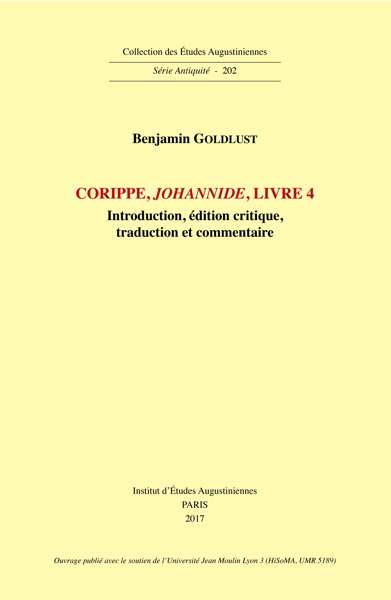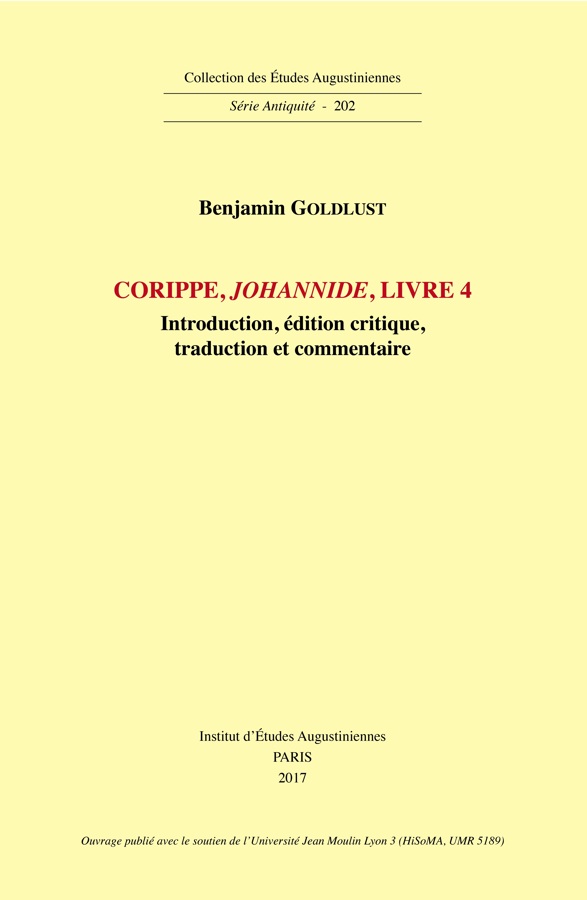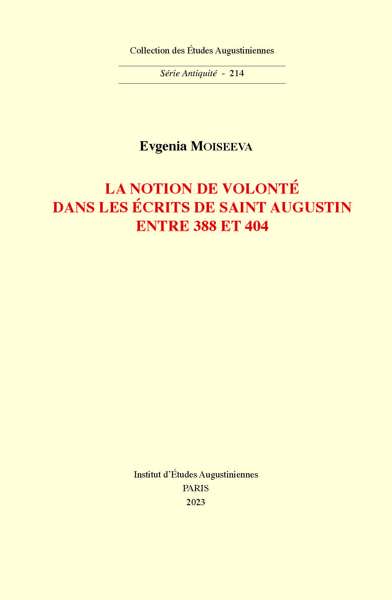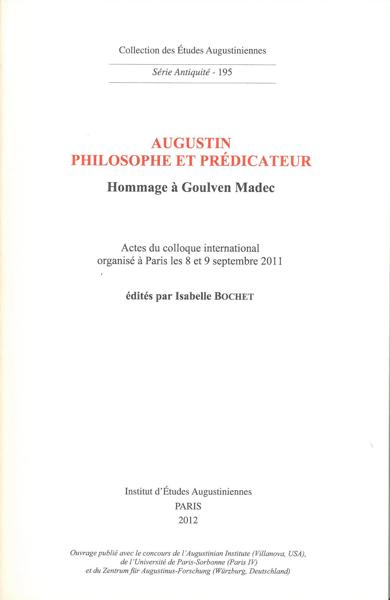
Corippe
Corippe, Johannide, livre 4 : introduction, édition critique et commentaire
Benjamin Goldlust
- Pages: 271 p.
- Size:165 x 250 mm
- Language(s):French, Latin
- Publication Year:2017
- € 34,13 EXCL. VAT RETAIL PRICE
- ISBN: 978-2-85121-286-3
- Paperback
- Available
The Iohannis is a panegyrical epic of eight books composed by Corippus in honor of the Magister militum John Troglita, whom the Emperor Justinian commanded to crush the Berber uprisings and pacify Africa in the years 546 to 548. In the overall economy of the poem, book 4 enjoys special status. It holds the end of the self-contained narration (3, 52 – 4, 246) of Africa’s past, a territory now at bay, made by the tribune Liberatus, and evokes the first decisions of John Troglita, who arrived on the scene at a providential moment. In his analysis, the author brings to light the specific mechanisms of composition, establishes the epic aspects and discusses the underlying political and religious ideology of the book as well as its historical (notably prosopographical) interest, before considering the language, metrics and style. Finally, this critical edition is the first to restore to the book what is very likely its real ending, which previous editors had placed 48 lines later. Compared to books 2 and 3 (primarily ethnographic and historical) and books 5 to 8 (forming an Iliadic section through their many battle scenes), book 4 thus appears – thanks to the variety of form nevertheless unified by its purpose – to be a valid touchstone by which to judge Corippus’ skills as a writer and his relationship to the literary authority.
La Johannide est une épopée panégyrique en huit livres, chantée par Corippe en l’honneur du magister militum Jean Troglita, qui fut chargé par l’empereur Justinien de mater les insurrections berbères et de pacifier l’Afrique entre 546 et 548. Dans l’organisation d’ensemble du poème, le livre 4 occupe un statut particulier. Il réunit, en effet, la fin du récit enchâssé du tribun Libératus (3, 52 – 4, 246) sur le passé de l’Afrique, qui est aux abois, et l’évocation des premières décisions de Jean Troglita, qui arrive sur place providentiellement. L’analyse met ici en lumière les ressorts précis de la composition, procède à l’inventaire de la matière épique et souligne l’idéologie politique et religieuse qui sous-tend le livre, ainsi que son intérêt historique (et notamment prosopographique), avant de traiter de la langue, de la métrique et de la stylistique. Cette édition critique est enfin la première qui donne au livre 4 ce qui est sans doute sa vraie fin, que les éditeurs précédents plaçaient 48 vers plus bas. Comparé aux livres 2 et 3 (très majoritairement ethnographiques et historiques) et aux livres 5 à 8 (formant une section iliadique où dominent les récits de bataille), le livre 4 paraît ainsi, par sa variété formelle cependant soumise à une unité globale de ton, être une bonne pierre de touche pour mettre à l’épreuve l’habileté de l’écrivain Corippe et son rapport à l’autorité littéraire.




